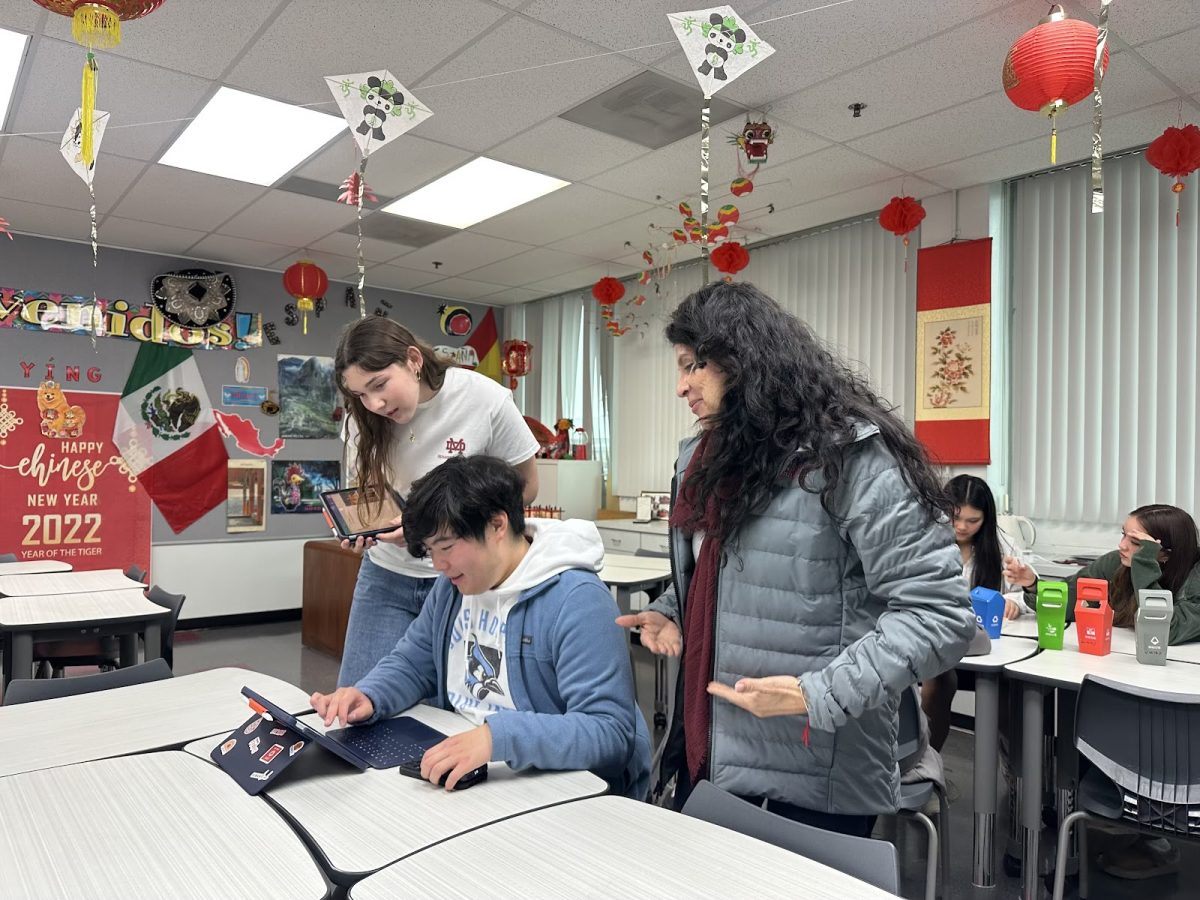To enrich students in learning about different cultures, Mater Dei’s World Language Department offers several courses for students to meet their two-year language requirement such as Spanish, French, Chinese, and American Sign Language. However, one of the smallest and most unique language courses available is Latin.
Mater Dei offers both college preparatory and honors courses for Latin at three levels, culminating in one level of Honors Latin 4 for seniors. Since it is a dead language, the curriculum focuses primarily on vocabulary, grammar, and culture. Translation is another key component to the study of Latin, beginning from the textbook to primary sources such as Latin poetry and inscriptions. Students not only learn the language of Latin but also extensively study the history of the Roman Empire enriched with artifacts including coins, frescoes, and mosaics.
World Languages Teacher Mark Mulholland has been teaching all Latin classes at Mater Dei for fifteen years. Though he originally planned on studying history, Mulholland rediscovered his passion for it after taking a Latin literature course in college.
”I had taken Latin when I was in high school, but only for two years,” Mulholland said. “When I was in college, I wasn’t really thinking about taking Latin as a course or studying Roman culture. I thought I wanted to do something in history. [But then I took] a year of Japanese, and then there was a requirement that I take a literature course. There was this course being offered in Latin literature and translation. We just read the English translation of [Latin], but it was all things written by the Romans. I realized that maybe this is the area of history I’d like to do.”
Once Mulholland combined his love of history with Latin, a perfect job opportunity opened up for him, which was teaching Latin at Mater Dei.
“I started taking courses in Latin and Greek. Then as a graduate student, I ended up doing ancient history, where you add a lot of the Latin and Greek that you have already [studied],” Mulholland said. “ [By then] I’d finished up with my master’s degree, [and] I wanted to teach high school. There aren’t a lot of Latin teaching jobs, so I just taught what was available. I jumped into teaching whatever [courses schools] had for me to teach when I started teaching high school. Then the Latin job opened up 15 years into [my career]. I [thought], great, I’d love to do that.”
Mulholland’s favorite part of teaching Latin is when students share the same excitement he has for Latin by grasping its concepts.
“Moments that I really enjoy are when my students start getting the [concepts of Latin],” Mulholland said. “Like when we look at a coin and they start giving an [accurate] description, or [when they say] ‘hey, I see what they did in that poetic line.’ [This] is about as close as you can get to fluency in Latin: when you’re finally reading through it or looking at things and understanding their tricks, their conventions.”
Sophomore Olivia Wills has been taking Latin for two years. She consistently looks forward to Latin as the highlight of her day, especially because of the class environment.
“I really liked the class, and Mr. Mulholland is fun,” Wills said. “If I didn’t like [the classes] I had today, I could always look forward to Latin class.”
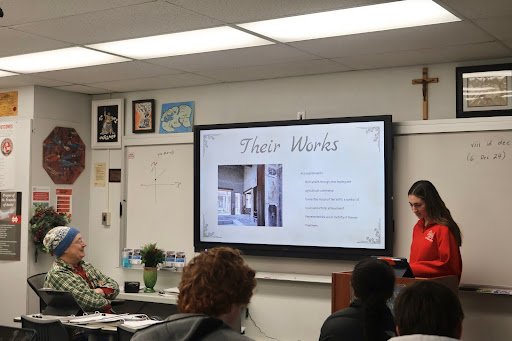
Studying Latin has also assisted Wills in English, as Latin roots play an integral role in English vocabulary.
“[Latin has] helped [me discover] the roots of English words,” Wills said. “They’re easier to distinguish.”
Junior Thomas Mitchell is an Honors Latin 3 student who similarly found that Latin strengthened his understanding of other subjects, including and history. He also appreciates learning about the rich culture of the Roman Empire.
“Latin has extremely helped me academically in other classes, strengthening my ability to write and use vocab based on Latin roots, as well as to understand and analyze the significant ways authors write,” Mitchell said. “The historical side of Latin and the Roman culture that we learn has helped me understand and compare to events in my APUSH class. Though people may call it a dead language, this class is twice the fun with learning a language and the culture behind it.”
One particular tradition that is a favorite among Latin students is the annual Christmas Carol Competition where students get to compete with each other to see who can translate Latin Christmas carols into English first. Mitchell enjoys the friendly competition with his friends.
“The most memorable day I have in Latin is the annual Christmas carol competition where we face off in teams translating a line from a well known Christmas carol, and guess which carol it is, and the first to find all of them wins,” Mitchell said. “I enjoy the Christmas Carol Challenge because it is fun to race against my friends and it’s something to look forward to every year.”
Latin also helps students obtain a well-rounded education through creative assignments. Mitchell enjoyed summarizing the Iliad by Homer through emojis in Honors Latin 2, which enforced his knowledge of the well-known epic.
”My favorite assignment from Latin thus far is the retelling of the Iliad with emoji sentences,” Mitchell said. “The weekly assignments [were] super fun to create.”
Some students go above and beyond with their Latin education. Senior Julianna Botros is currently in Honors Latin 4 and has assumed responsibility for Latin Club as president. Botros furthers her understanding of Latin by sharing it with others through tutoring, activities, and more.
“As President of the Latin Club I hope to create a sense of community for students taking Latin,” Botros said. “The club will include homework help, concept reviews, and fun activities.”
While Botros initially took Latin to learn more about the language of medicine, she decided to continue it throughout high school because she enjoys learning about Roman culture and studying the language itself.
”I decided to take Latin because the language can help me as I go on to study medicine; much of the human body [vocabulary] comes from Latin root words,” Botros said. “I stuck to Latin because I really enjoyed it! I find both the language and culture interesting, and I’ve learned so much about different romance languages, etymology, and origins of culture and customs.”
In Honors Latin 4, students have the opportunity to take the National Latin Exam in spring, testing on Latin translation, vocabulary, comprehension, and culture. With a passing score, they can receive a Seal of Biliteracy which acknowledges their competency in Latin. This recognition can even be used to bypass beginner language credits at certain universities. Senior Victoria Cox explains why she plans on taking the National Latin Exam.
“I want to put what I have learned to use and showcase my knowledge,” Cox said. “I want to see the past four years of hard work pay off.”
The curriculum in Honors Latin 4 spends the entire year preparing for the National Latin Exam, while optional, through close examination of various primary sources from Caesar’s Gallic Wars to Phaedrus’ Fables. These exercises have assisted Cox not only in preparation for the National Latin Exam, but also in her Latin education in general.
”Honors Latin 4 has challenged me in its more advanced vocabulary and grammar structure,” Cox said. “We also take a lot of practice biliteracy tests, which helps me keep my skills sharp, tells me what concepts I’ll need to know, and gives me a good feeling as to what the actual test will be like.”
The unique experience of taking Latin at Mater Dei provides valuable skills and lessons that can be applied to many different realms of academia, from English to history, and even everyday critical thinking. Mulholland hopes that his Latin students will take away an appreciation of Latin culture and literature from his classes.
“[I hope students will discover] an appreciation of ancient culture and increased critical [thinking skills], as well as better understanding of their own language through English grammar, literature, and analysis of reading any sort of language,” Mulholland said. “Because they spend time very carefully looking at what they’re studying, they can start to apply that to other areas [of their lives] as well.”




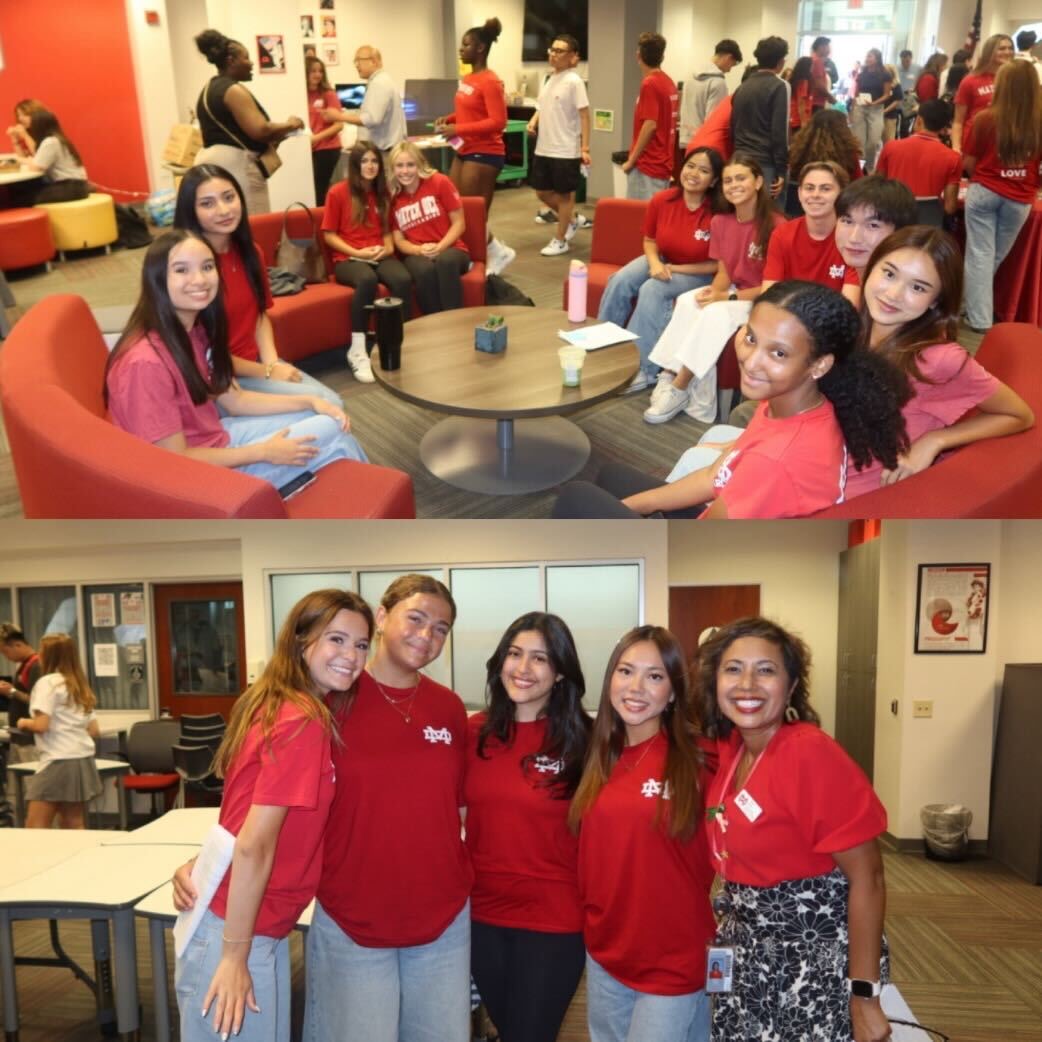

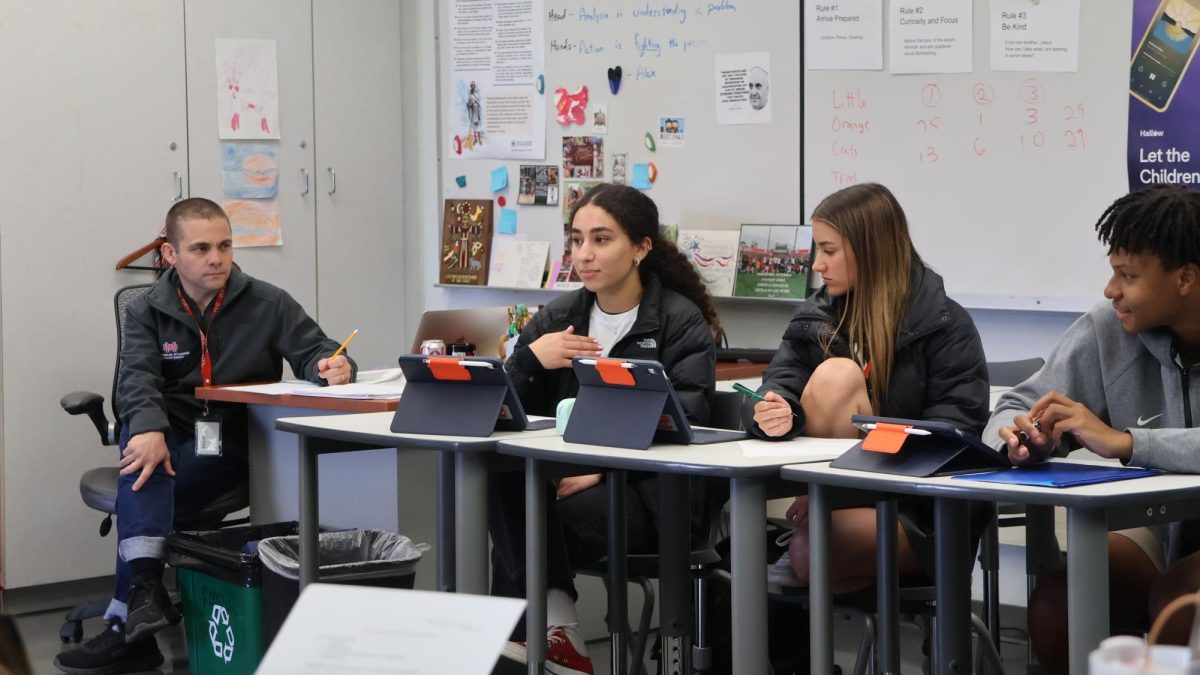


![CELEBRATION IN FAITH AND UNITY Chaplain Father Mark Cruz gives his homily on bringing together a community of people blessed with Catholic education. Catholic Schools Week (CSW) is for celebrating how Catholic education has changed our lives. “I believe Mass plays a huge role in CSW because it reminds us how crucial faith is to our everyday lives,” Delaney said. “During CSW not only should we thank our faculty and staff, but also [remember] that CSW is centered around our connection to God.”](https://thescarletscroll.com/wp-content/uploads/2025/02/Father-Mark.jpg)
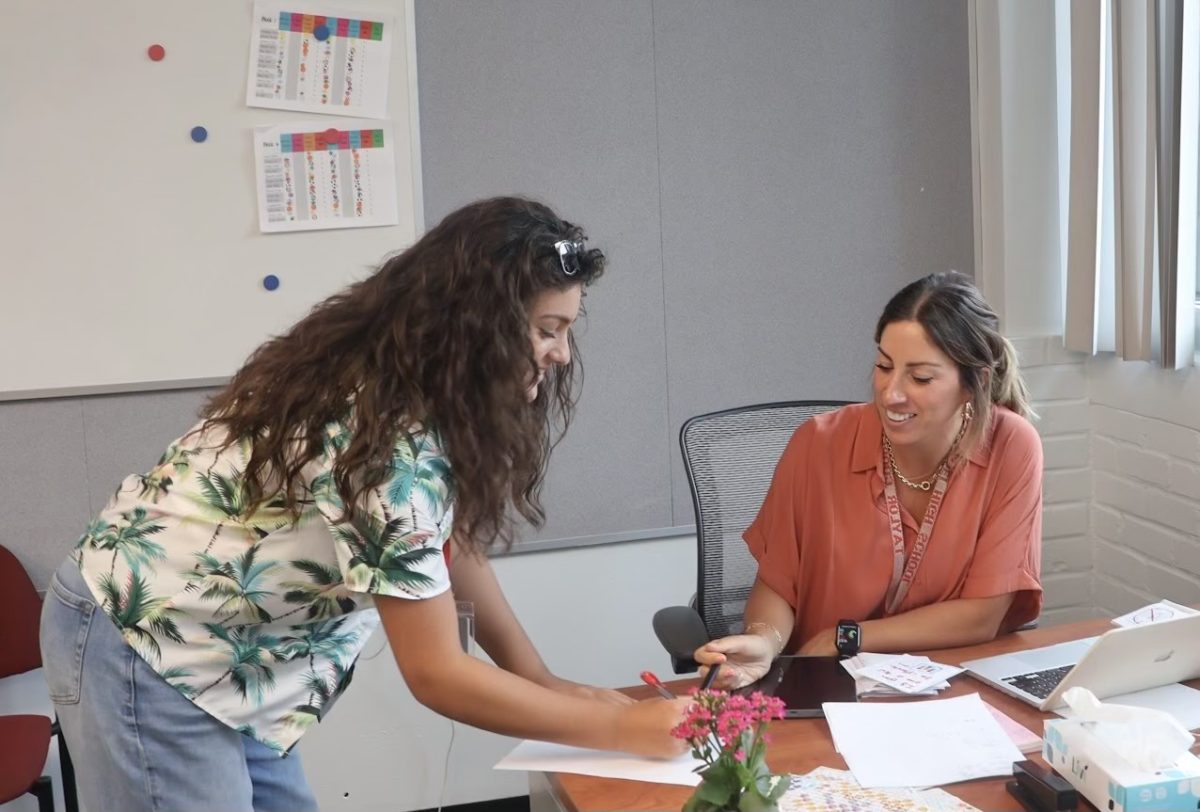
![GETTING BETTER TOGETHER Mater Dei swimmers exert themselves at morning practice. As the season approaches, the swim team must discipline themselves for their early swim competitions. “Waking up early for practice is really hard, and getting yourself up in the morning and committing to the sport can be [difficult] at times,” Acevedo said.](https://thescarletscroll.com/wp-content/uploads/2025/10/img_9894-1200x800.jpg)
![FRIENDSHIP IN PRINT Members of the Hi-Lighter student newspaper gather for a press conference in 1954. Among them is senior Lenore Rigney (O’Hara), who had worked on the publication for two years after transferring to Mater Dei as a junior. “I found the students were all so friendly and accepting,” O’Hara said. “It was [important] to be friendly to someone new and to help them get used to the school and make friends.”](https://thescarletscroll.com/wp-content/uploads/2025/10/IMG_3582-1200x794.jpeg)

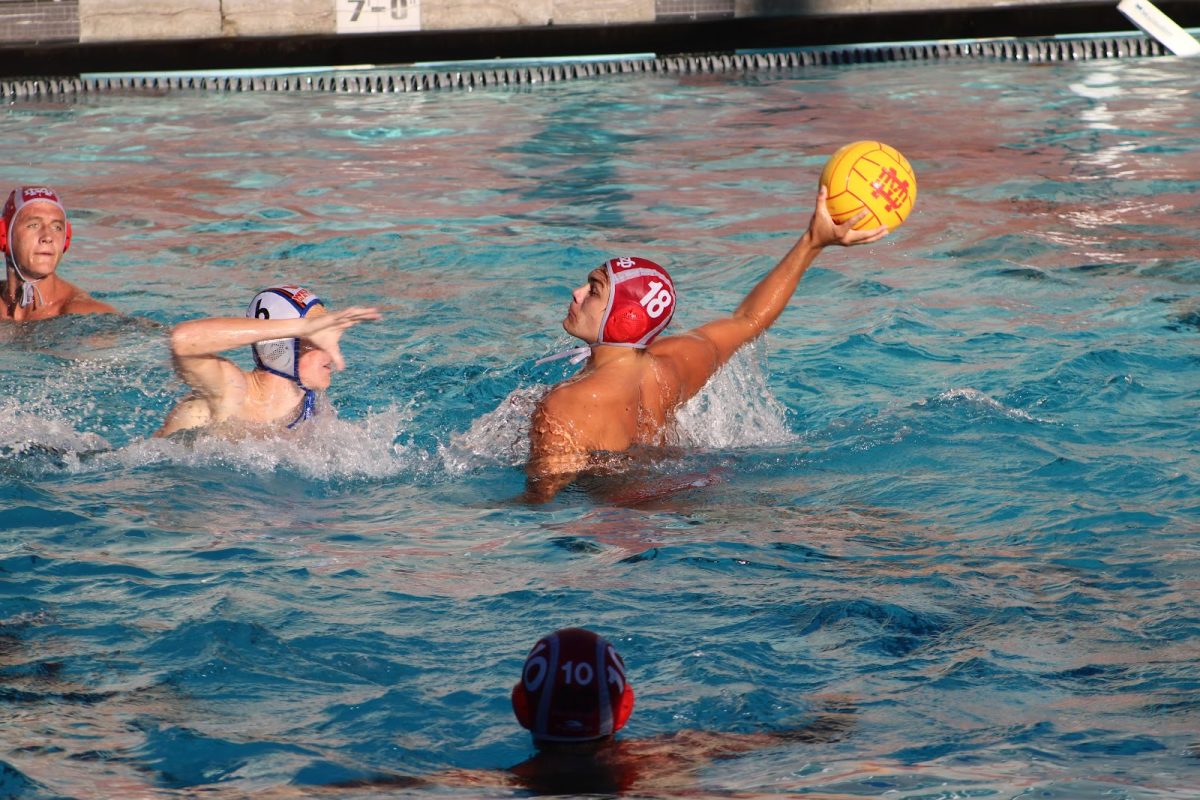
![PUTTING IN OVERTIME: Student wrestlers participate in scrimmage matches during practice. The Mater Dei Wrestling Team puts a lot of time and effort into training for matches. “I practice every day,” Gomez said. “We train for three hours and then [a] two hour lift.”](https://thescarletscroll.com/wp-content/uploads/2025/09/wrestling.jpg)
![SETTING THE STANDARD: Mater Dei High School and Playfly Sports announced its historic media partnership in the spring of 2025. As Mater Dei Athletics continues to achieve new heights, Playfly will introduce new partnerships and sponsors for these programs. With the added revenue and resources, Mater Dei can improve the high school experience for all students, while engaging the community in a showcase of Monarch pride. “[This partnership is designed] to increase the experience that our athletes and our non-student athletes have with the [athletic] programs,” Melvin said. “School spirit, engagement, and pride are all things we [keep in mind].” Photo taken by Kenzington Ragge.](https://thescarletscroll.com/wp-content/uploads/2025/09/IMG_0237.jpeg)
![FAITH THROUGH GENERATIONS Lenore O’Hara ‘54 (right) and Director of Discipline and Attendance Timothy O’Hara ‘78 (left) open the 75th Anniversary Mass in the Grotto. The attendance of alumni, faculty, students, and parents highlighted the connection within the school community. Vice President of School Relations Scott Melvin reflected that this was one of his most memorable moments he has had so far. “At the beginning in our opening Mass, watching Lenore O'Hara go up on stage, speak, and open our Mass, that was really beautiful,” Melvin said. “Although [Mater Dei has] changed tremendously over the years, elements that happened back in 1950 are still present today. And we are still fulfilling the mission of Catholic education and building servant leaders with our students.” Photo courtesy of Mater Dei High School.](https://thescarletscroll.com/wp-content/uploads/2025/09/IMG_3323-1200x808.jpeg)


![DUNK THE TRASHKETBALL Honors Biology Teacher Kelly Petro clarifies the rules of his interactive science activity. Trashketball, Petro’s newly created game, reinstates crucial science concepts and terminology while allowing students to study recently learned material. Whether in the classroom or on the lacrosse field, Petro ensures that his student-athletes absorb the information using unique study methods. “For school, I try [to have] a general sense of what works for everyone in the classroom [studying wise]. I want everyone to know the [importance of what we are doing in biology],” Petro said.](https://thescarletscroll.com/wp-content/uploads/2025/06/HEIF-Image-1200x800.jpeg)
